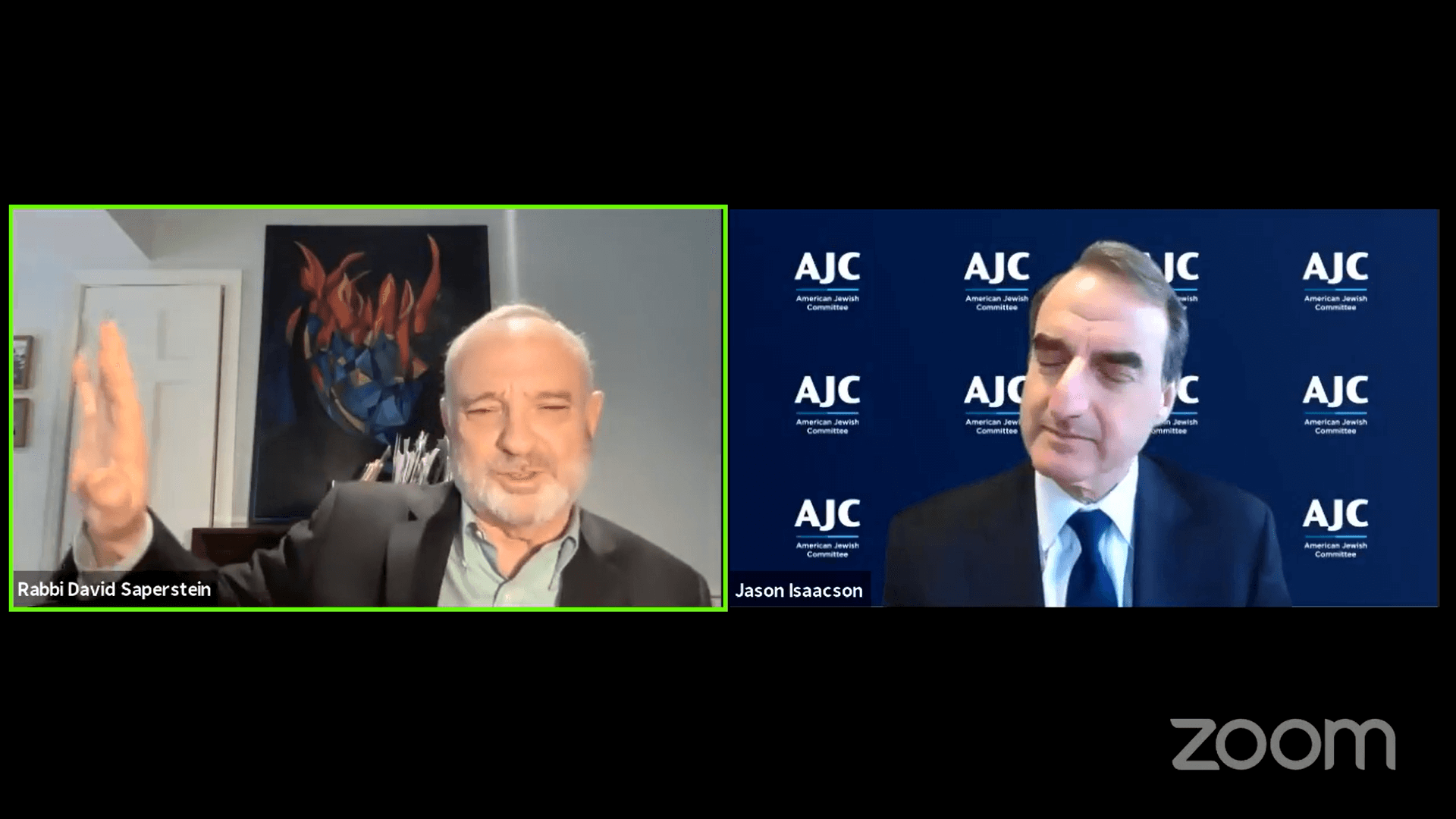
A Reform Jewish leader gave a one hour talk to the American Jewish Committee about religious persecution of religious minorities around the world and while he expanded on the ethnic cleansing of ethnic Muslims in Myanmar and persecution of Uighurs and Tibetan Buddhists and crimes of apartheid South Africa, he thoroughly avoided Israel’s treatment of Palestinians. When the subject did come up, Israel was offered as a model society.
Reform Jewish leader David Saperstein gave an annual lecture to the AJC that embodied the idea of PEP, Progessive Except for Palestine. The lecture was titled, “Speaking out for the Voiceless: Protecting the Human Rights of Religious Minorities Worldwide,” and Saperstein never mentioned Palestinian persecution during an hour of discussion.
Saperstein was outspoken against the ethnic cleansing of the Rohingyas’ in Myanmar.
You are talking about the ethnic cleansing of a minimum of 750,000 people if not more in the most brutal circumstances simply because of their ethnic Muslim identity that they had in that country… It was a great failure of the democratic efforts in Myanmar that took place. For too long the world was standing by on that.
More than 700,000 Palestinians were ethnically cleansed by Israel on the basis of their “ethnic Muslim identity” when the Jewish state was founded in 1948-49. Those Palestinians have never been allowed to return to their homes. Saperstein did not mention them.
He praised the “international outrage against apartheid and how it led to significant changes,” but failed to mention what Palestinians call “a watershed moment” of this year: a leading Israeli human rights group said that Israel has an “apartheid regime” of Jewish supremacy from the river to the sea.
Saperstein called for “equality, tolerance and pluralism” and for the separation of religion and state, then went on to name China, India, Russia, Nigeria, Pakistan, Iran, and Saudi Arabia among countries that put serious limitations on religious freedom.
But he never mentioned the Jewish Nation State Law of 2018 in Israel, which officially makes Jews higher citizens than any one else, and says that Jews have an exclusive right to self-determination in Israel, including land rights and language rights. This law establishes apartheid as official Israeli policy, Aida Touma-Sliman, a political leader of the Palestinian minority inside Israel, explained on a tour of the United States. Saperstein’s voice for the voiceless does not include her!
“The last thing we need is a government deciding whose prayers are going to be heard,” Saperstein said. In fact, Muslims and Christians have complained about restrictions on prayer by Israel; but he did not mention that.
Saperstein said that Jews were the “quintessential victims of religious persecution” and said that victimization now includes criticisms of Israel.
Anti-Zionism and anti-Israelism are features of a new “devastating” rise of antisemitism that has “created a perilous time” for Jews in Europe, Saperstein said. That new antisemitism has a “range of different expressions,” from murderous attacks on Jews to pointed criticism of Israel.
[European antisemitism] is a really serious problem. Obviously in the aughts, A lot of that, The growth of anti Israelism, attacks on Zionism had to do with it, and the IHRA definition that the American Jewish Committee was so important in raising up played a key role in guiding countries in when anti-Zionism and anti-Israeli policy morphs into antisemitism. That was a significant contribution….
People ought to use IHRA as a way to monitor, to educate people to trainofficials and the public on what is and isnt’ antisemitism.
The IHRA definition of antisemitism includes pointed criticism of Israel: such as singling Israel out among other countries, or comparing Israeli leaders to Nazis. Palestinian solidarity groups have campaigned against the definition for limiting free speech on behalf of Palestinians. And many liberal Zionist organizations have opposed the IHRA definition for its broadbrush approach.
But Saperstein said the IHRA is a “consistent standard” that ought to be “accepted by everyone in America for what is and what is not antisemitism.” He lamented that the Trump administration had politicized it by “talking about anyone who supports BDS is inherently antisemitic” or saying that “human rights groups that are critical of Israel” would be punished under the IHRA.
Saperstein praised the Trump administration for cutting deals between Israel and Arab monarchies.
Clearly the Abrahamic accords represent a major breakthrough… [The] outside-in effort to develop better relations between Israel and Arab countries is pivotal. It really is a change in history for us, and it needs to be celebrated, and the Trump administration deserves a lot of credit for that, and I say that as an outspoken critic of much of their domestic and foreign policy.
But he said that the Palestinian situation continues to “fester” and so long as it does there will never be stability in the region. He called for a two-state solution to make a Palestinian state alongside the Jewish one. He did not criticize Israeli leaders for their refusal to advance that project.
Related posts:
Views: 0
 RSS Feed
RSS Feed

















 March 20th, 2021
March 20th, 2021  Awake Goy
Awake Goy  Posted in
Posted in  Tags:
Tags: 
















